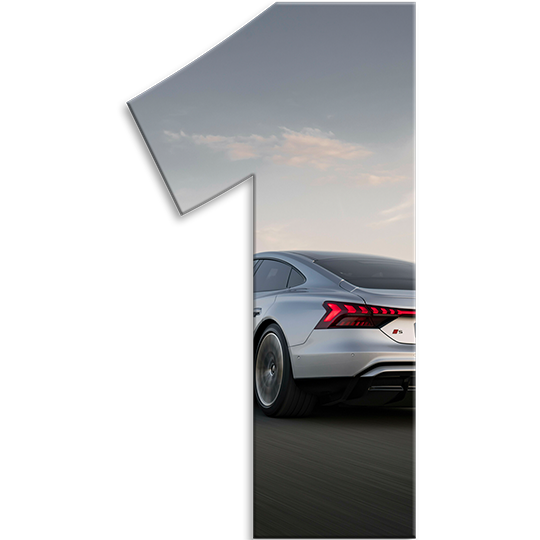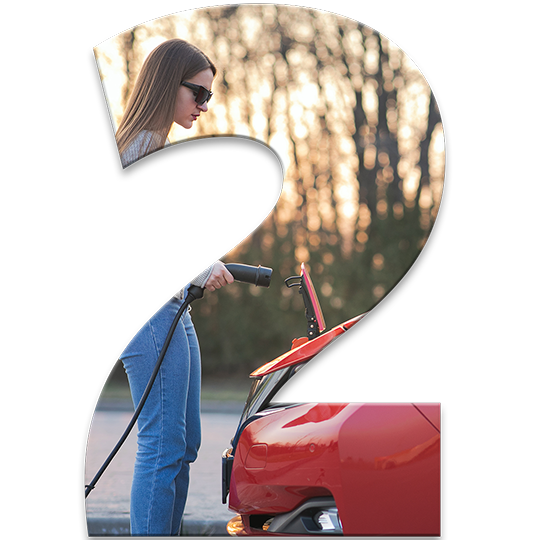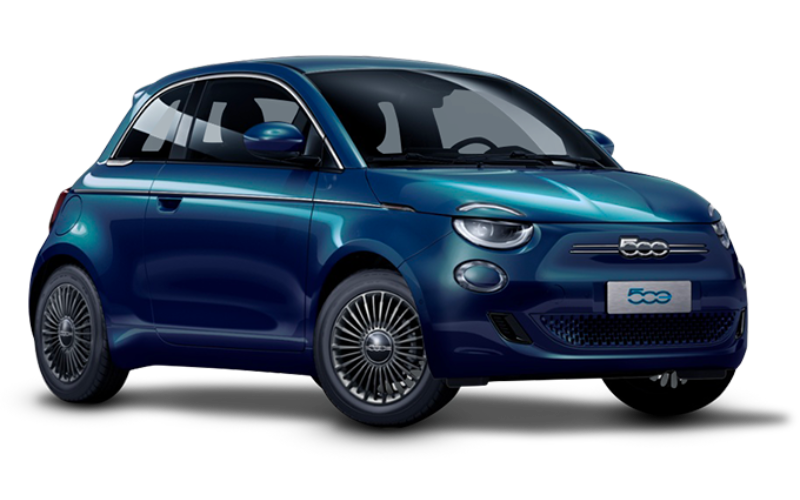5 Simple Steps to Choosing an EV
Electric vehicles (EVs) are now a mainstream car choice in the UK, and it’s no surprise. In the past year alone, the once-rare sight of an electric car in a car park has become commonplace. More UK drivers than ever are making the switch to electric, driven by extensive research and the realisation that now is the perfect time to embrace greener motoring.
If you’re considering transitioning from a petrol or diesel car to an electric vehicle but feel overwhelmed by the process, this guide will help you determine if an EV is the right choice for your next car.
Assess Your Typical Journey and Electric Car Range
One of the biggest concerns for potential EV owners is range anxiety—the fear of running out of charge mid-journey. However, modern electric cars typically offer over 200 miles of range per charge, which is more than enough for the average UK driver, who travels less than 20 miles a day. Many EVs can even outlast the range of traditional petrol or diesel cars, by travelling more than 350 miles on a single charge.
To begin, calculate your usual journey distances, whether it’s commuting, school runs, or shopping trips. Track your weekly mileage to get a clear idea of your driving habits. Then, decide how often you want to charge your vehicle—whether it’s once every two weeks, once a week, or more frequently. Remember, you might also be able to conveniently charge your car overnight at home, so there’s no need to visit a public charging point most of the time.
For those who frequently take long journeys, consider whether investing in a larger battery with a greater range, but it’s worth calculating if this is necessary, especially if longer trips are rare for you.
Find out if an EV is right for you
Understanding EV Batteries
When choosing an electric vehicle, it’s a good idea to understand the key metrics related to batteries. Here is a breakdown of the essential terms:
- Li-Ion: Short for lithium-ion, this is the most common type of battery used in EVs.
- kWh (Kilowatt hours): This figure indicates the battery’s capacity. A higher kWh number generally means a longer range. However, factors like car size, weight, driving conditions, and temperature can affect energy usage, just like in petrol or diesel cars.
- Charging Speed: EV batteries can be charged at different speeds, from slow to super-rapid. While a standard three-pin socket can charge your car overnight, rapid chargers can boost your battery to 80% in just 20-30 minutes. The charging speed varies by car model, so check these details when choosing your EV.
The average EV battery is around 60kWh, but batteries can range from smaller to much larger capacities.

Here are some examples:

21.3kWh battery
85-mile range

59kWh battery
220-mile range

82.5kWh battery
295-mile range
Plan Your Charging Strategy
Many potential EV owners are concerned about the availability of charging points across the UK. However, the reality is that:
- 80% of EV Charging Happens at Home: Most EV owners charge their cars overnight. A 22kWh home charger can fully charge a 60kWh battery in eight hours, providing you with more than enough range for daily use.
- Workplace and Public Charging Options: You can also top up your EV at work or while running errands. Many locations offer free or cheaper rates for charging, making it convenient to plug in your car and carry on with your day.
- Extensive UK Charging Network: The UK boasts more charging points than petrol stations, located in cities, rural areas, and everywhere in between. Whether you’re planning a long journey or a quick trip, there are plenty of places to recharge. If you need to top up while you’re out and about, a quick 35-minute charge with a 50kWh charger can add up to 100 miles of range.
For long journeys, rapid chargers are typically found at motorway services, making it easy to top up your battery during a rest stop. Modern EVs provide real-time range information, so you’ll know when to stop for a charge well in advance. Plus, in-car satnav systems and apps can help you plan your journey with charging stops along the way.
Find a charger near you
Consider Your Lifestyle Needs
When choosing an EV, it is important to consider your lifestyle and preferences. Do you need a compact city car, a spacious estate, or a powerful SUV? Electric vehicles come in all shapes and sizes, catering to a variety of needs, just like their petrol counterparts.
Tech enthusiasts will appreciate the advanced features in EVs, including over-the-air software updates that enhance your car’s capabilities without a trip to the garage. From infotainment systems to driving aids, electric cars are packed with the latest technology.

Calculate the Cost of Your EV
It is a common misconception that electric cars are significantly more expensive than petrol or diesel vehicles. However, if you’re a company car driver or can access a salary sacrifice scheme, you could make substantial tax and National Insurance savings on monthly vehicle costs, making EVs more affordable than you might think.
With Tusker, the amount for the car is deducted directly from your salary and include insurance, breakdown cover, maintenance, servicing, and even replacement tyres. With no deposit required and low running costs, owning an electric car is within reach for many drivers.
Find out the cost of an EV
Why You Should Choose an EV with Tusker:
With salary sacrifice cars, employees can save on National Insurance. When choosing an electric vehicle, drivers can also save on income tax and enjoy lower benefit in kind rates.
Fully comprehensive motor insurance, breakdown cover, annual road tax, accident management, routine servicing, MOTs and replacement tyres are all included in just one fixed monthly amount taken from the employee’s gross salary.
Fancy electric? Hybrid? Employees choose the fuel type, make, model, colour, interior and any optional extras on a car through the car benefit scheme. They also choose the mileage and length of agreement suited to their needs.
We don’t ask for any deposit upfront so employees can keep their savings safe. They simply choose their ideal car and only once it’s been delivered, the monthly amount is taken from their gross salary.
